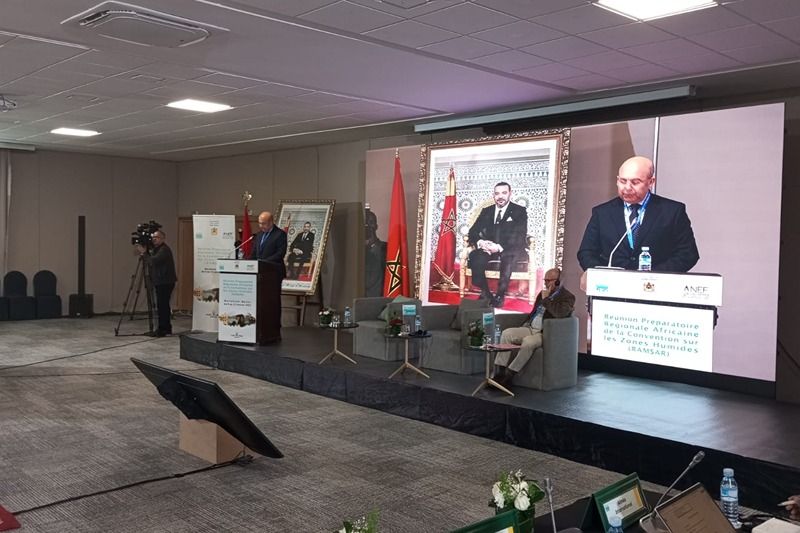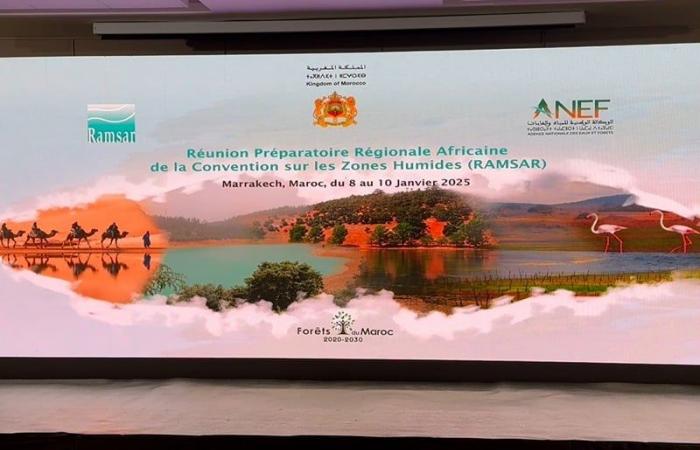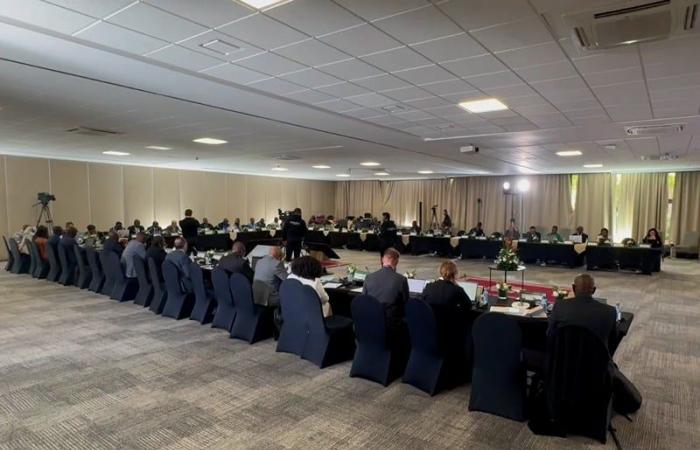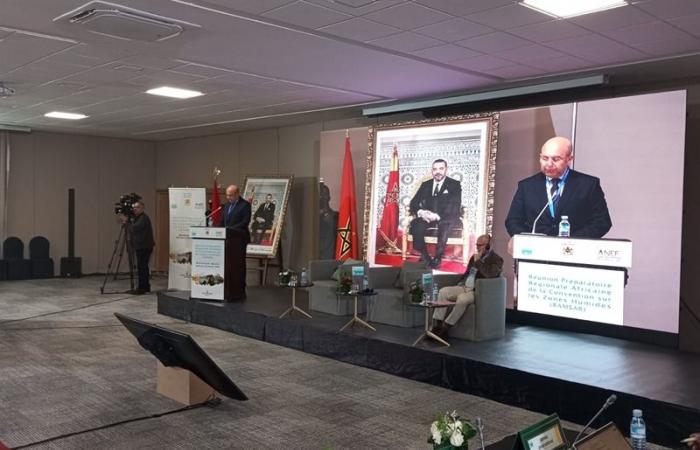Morocco is hosting, from January 8 to 10, 2025 in Marrakech, the African regional preparatory meeting for the 15th Session of the Conference of the Parties to the Ramsar Convention on Wetlands (COP15), marking an essential step in collective mobilization for the preservation and rational use of wetlands in Africa.
The work of the African regional preparatory meeting for the 15th Session of the Conference of the Parties to the Ramsar Convention on Wetlands (COP15) began this Wednesday, January 8, 2025 in Marrakech. This high-level event brings together delegates from 40 African countries signatories to the Convention, alongside international partner organizations and renowned experts in wetland management. A unique opportunity to strengthen commitments to the preservation of essential aquatic ecosystems.
This meeting, organized jointly by the National Agency for Water and Forests (ANEF) and the secretariat of the Ramsar Convention, is of crucial importance for harmonizing African positions and debating the strategic issues inherent to conservation and sustainable use. wetlands, with a view to COP15 scheduled for July 2025. The discussions will be structured around essential themes, which will guide collective action in this vital area.
Among the topics discussed will be the new Ramsar Strategic Plan 2025-2034, which sets ambitious goals, including promoting the designation of new sites of international importance. This initiative aims to strengthen ecological connectivity, essential to protect the habitats of migratory birds, a symbol of the diversity and richness of aquatic ecosystems.
Participants will also examine the essential role of wetlands in the implementation of the Global Biodiversity Framework (GBF), adopted at the previous COP15 of the Convention on Biological Diversity. As spaces essential to biodiversity and climate resilience, these areas play a strategic role in combating contemporary environmental challenges.
In addition, the institutional strengthening of the Ramsar Convention will be at the heart of the discussions, aiming to improve its governance framework as well as its recognition on the international scene. This approach will also include the mobilization of funding dedicated to the conservation of these vital ecosystems, thus guaranteeing their sustainability for future generations. This preparatory work is therefore essential to establish solid foundations for the protection of wetlands and biodiversity in Africa.
During the opening ceremony, Abderrahim Houmy, Director General of ANEF, highlighted the Kingdom’s efforts in the conservation of water resources and wetlands. He explained that “ lWetlands are among the most valuable ecosystems on our planet. They provide essential services such as providing fresh water, supporting biodiversity, regulating floods, recharging groundwater and mitigating the effects of climate change. However, these ecosystems are threatened« .
-The DG also specified that since 1970, 35% of the world’s natural wetlands have disappeared, at a rate three times higher than that of deforestation. This degradation not only compromises ecosystems, but also the populations who depend on them for their livelihood. The effects of climate change, notably increased droughts, violent storms and rising sea levels, are accentuating this critical situation.

« Faced with these challenges, we have an obligation to strengthen our commitment to the conservation and restoration of these environments. This requires strong political will, innovative partnerships and the integration of wetlands into sustainable development strategies.“, he insisted.
According to Houmy, Since its accession to the Ramsar Convention in 1980, the Kingdom of Morocco has adopted a proactive policy to reconcile economic development and the preservation of biodiversity. Guided by the High Royal Guidance, the Kingdom has deployed an inclusive and participatory approach aligned with the 2030 UN Sustainable Development Goals.
He claimed that “ the strategy ‘Forests of Morocco 2020-2030′ embodies this commitment, offering tailored responses to preserve wetlands, strengthen the resilience of local populations and reconcile citizens with these spaces. The National Action Plan for Wetland Conservation, as a strategic tool, supports these efforts by providing an integrated vision for all ecosystems« .
At the same time, the official invited the participants to take full advantage of this meeting with a view to identifying the priorities of the Africa region in terms of wetland conservation, to consolidate common positions which reflect a united and determined Africa, and to fully integrate African expectations into the new Ramsar strategic plan.








